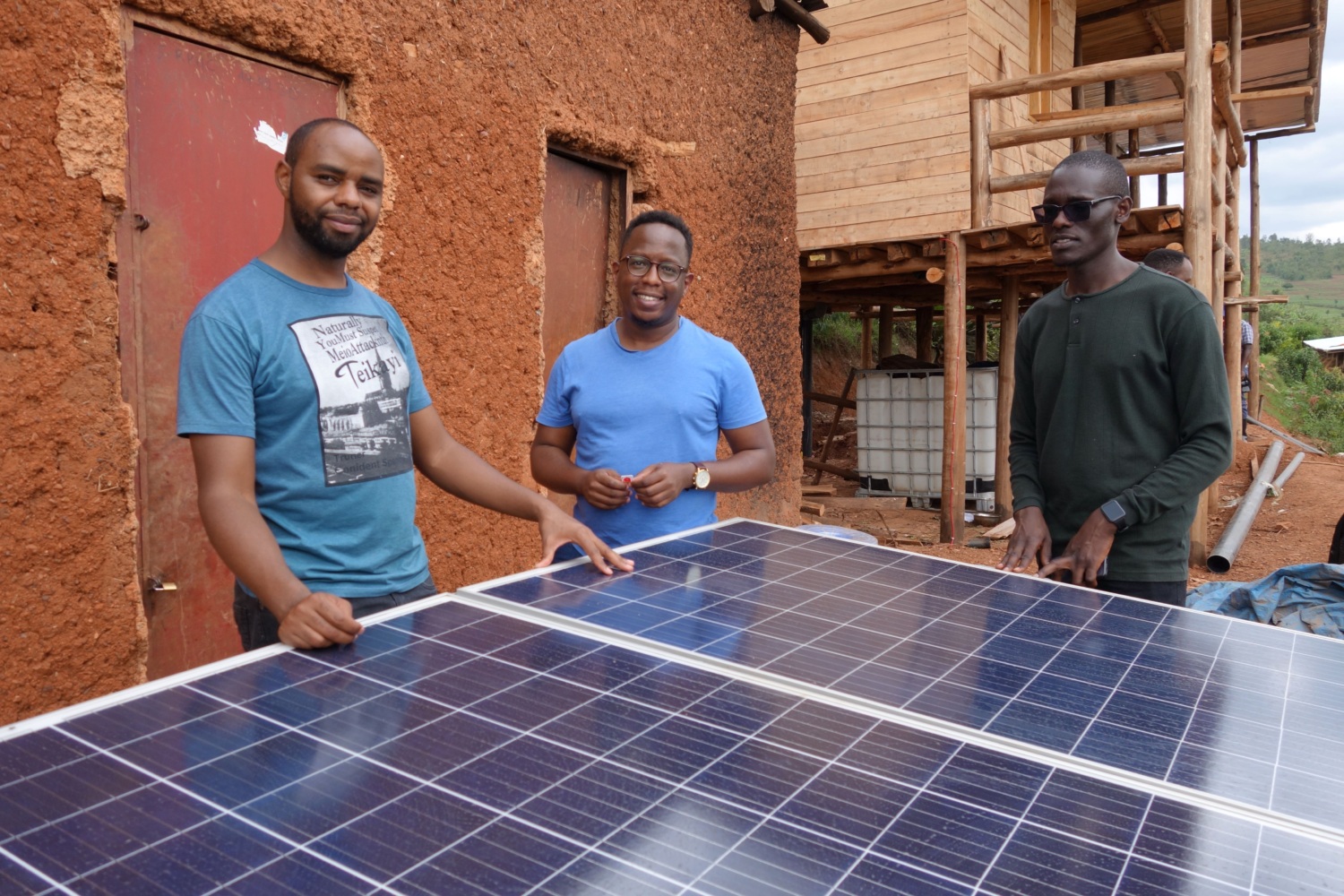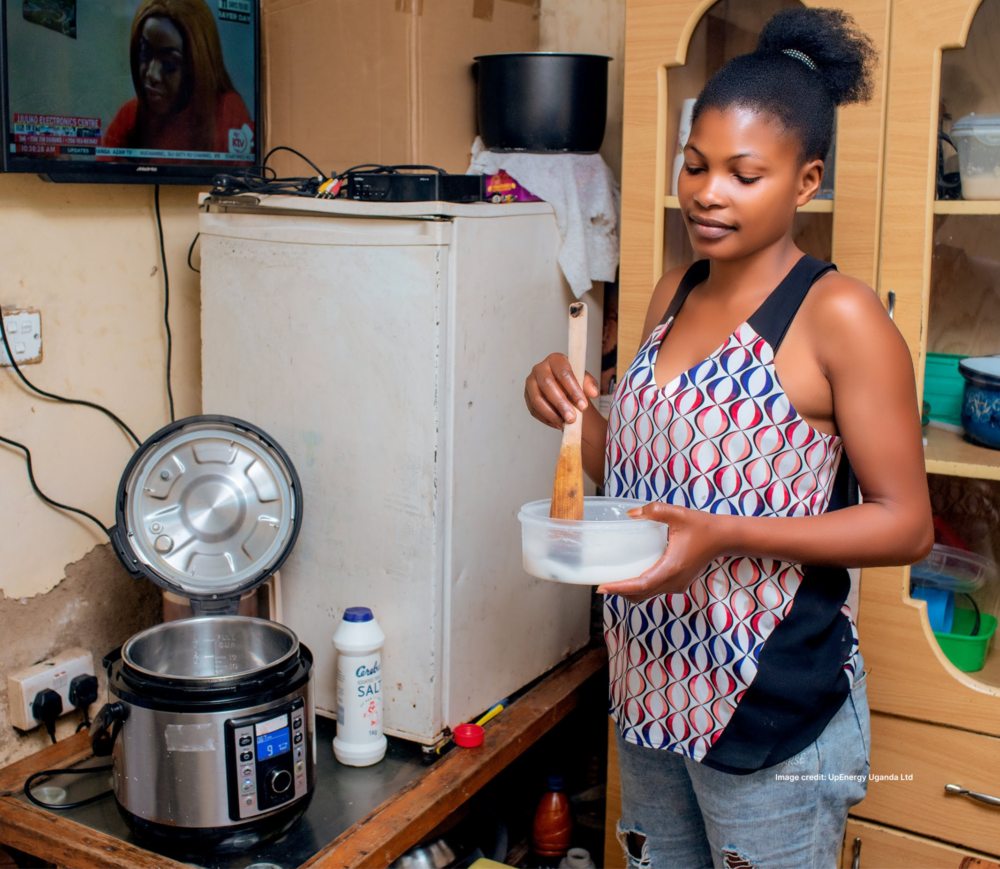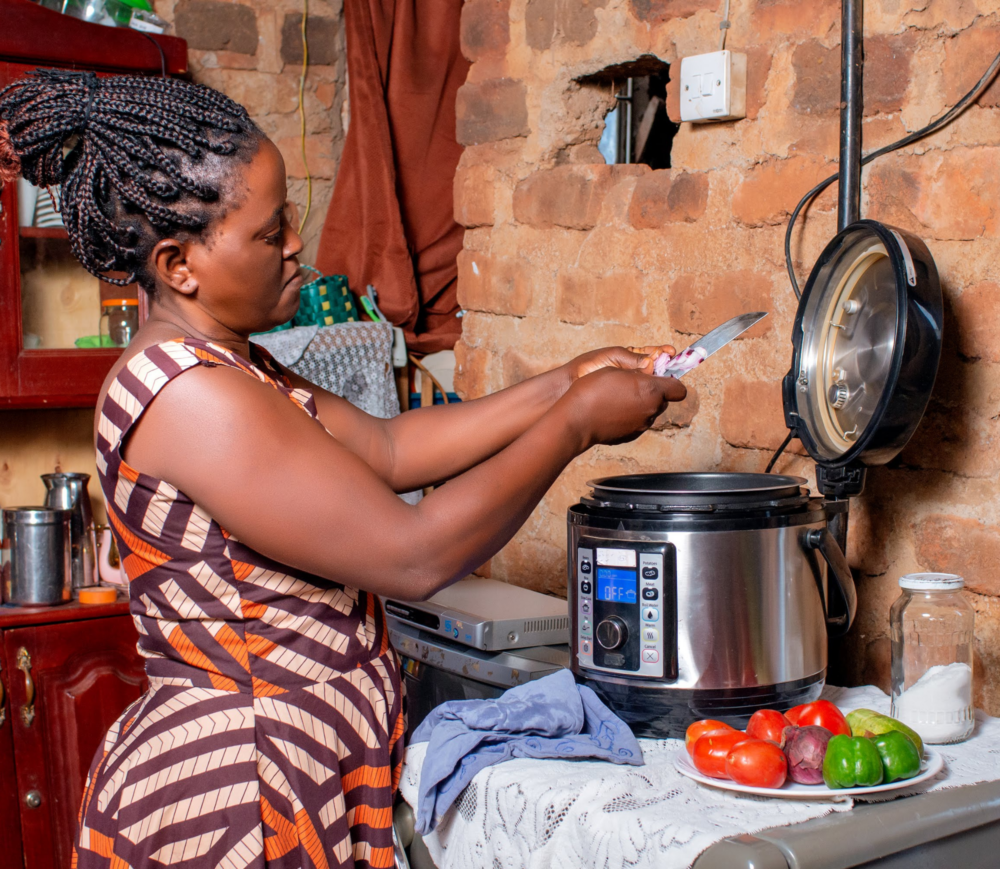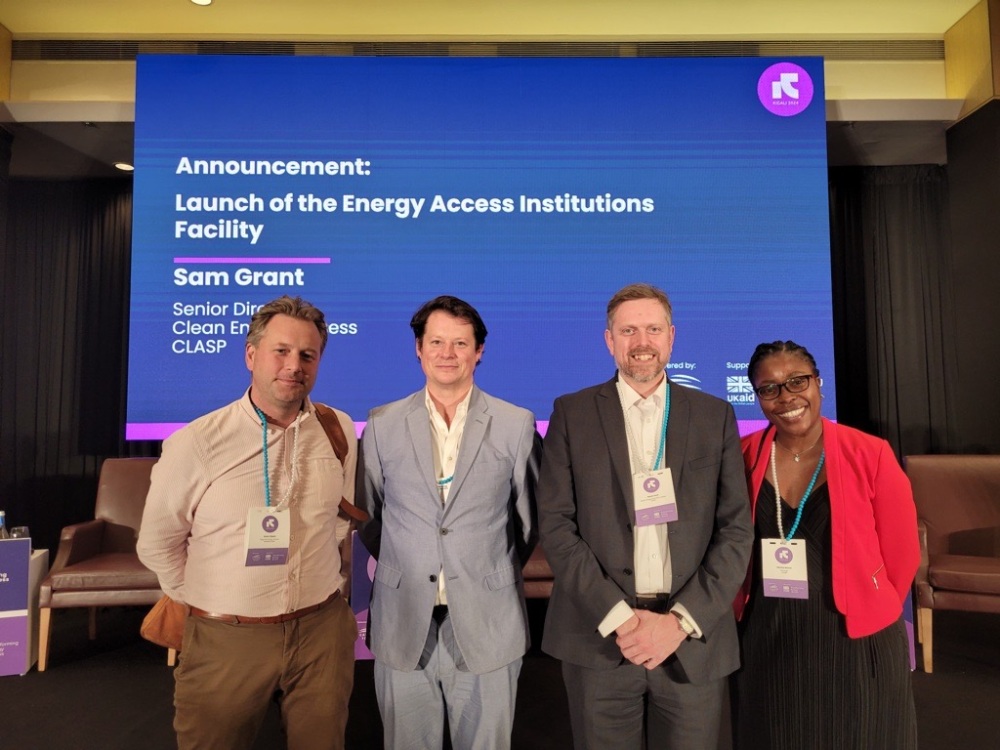Securing Year-Round Water Supply On Small Farms In Rwanda
In the hills of Rwanda, CLASP works to improve farmers' livelihoods by securing irrigation using solar water pumps.
Cosmos Ntare’s farm is in Kayonza, three hours outside of Kigali. Until recently, his ability to grow his main crops — peas, mangoes, oranges, maize, and beans — was limited by the availability of water. “Without irrigation, you only have two seasons to grow crops,” he points out. “With irrigation, I will be able to grow crops in the third season, the dry season.”
Water has also posed a challenge for Ntare’s livestock operations. He keeps several cows and goats at the top of a hill, where it can be difficult to transport heavy liquids.
To support Ntare in overcoming these issues, CLASP selected his farm to field test a solar water pump. Ntare had seen these devices on display in shops in Kigali, but hadn’t had the opportunity to try one out yet due to their cost.
Testing clean irrigation solutions
Secure irrigation is becoming a necessity as our planet heats. Solar water pumps are off-grid appliances that use sunlight for power. Photovoltaic panels generate electricity that powers a motor, allowing the pump to draw water from either under the ground or from ponds, lakes, and rivers.
By ensuring a regular supply of water, these pumps can increase a farm’s yield. In addition, they avoid the use of diesel pumps for off-grid electricity, so they have cheaper running costs and lower greenhouse gas emissions.
To understand how these productive use appliances perform in a working farm over time, CLASP and Sustainable Energy for All (SEforALL) selected Ntare’s farm to field-test a solar water pump for four months. CLASP’s team set up the pump, along with monitors designed to measure its efficiency. The researchers are also surveying the farmers during the testing period to understand whether these appliances are a good fit for their needs.
Measuring efficiency and business viability
While laboratory testing gives a glimpse of appliance performance in a controlled environment, it provides only a limited representation of how products operate under the rigors of real use. Field testing like that underway at Ntare’s farm is critical to measure the appliance’s efficiency and durability over an extended period of time. It can quantify time savings and additional income generated or saved, as well as calculate avoided CO2.
These measurements are particularly important in markets where there may not be a history of appliance usage or community awareness of how appliances can impact the livelihoods of first-time users.
About the project
This project is part of the Productive Use of Energy Pilot Study in Rwanda, conducted by CLASP with the support of Sustainable Energy for All (SEforALL) and the World Bank. The appliances being tested are electric pressure cookers, electric bikes, solar water pumps, and solar-powered fridges.
CLASP works enhance the access to affordable, energy-efficient appliances to improve the lives of people and reduce the impact on our climate.










